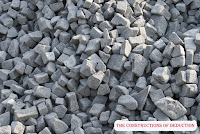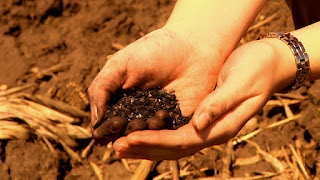What is Ballast | Railway Ballast | Functions of Ballast.
What is Ballast?
 Railway
Ballast is the foundation of railway track and provide just below the sleepers.
The loads from the wheels of trains ultimately come on the ballast through
rails and sleepers.
Railway
Ballast is the foundation of railway track and provide just below the sleepers.
The loads from the wheels of trains ultimately come on the ballast through
rails and sleepers. Functions of Ballast:-
Some of the important functions of railway ballast are:
1.
To provide firm and level bed for the sleepers to rest on.
2.
To allow for maintaining correct track level without
disturbing the rail road bed.
3.
To drain off the water quickly and to keep the sleepers
in dry conditions.
5.
To protect the surface of formation and to form an
elastic bed.
6.
To hold the sleepers in position during the passage of
trains.
7.
To transmit and distribute the loads from the sleepers to
the formation.
8.
To provide lateral stability to the track as a whole.
Requirements for Ideal Ballast:-
The ideal material for ballast should fulfill the following requirements
1.
It should be possible to maintain the required depth of
the material in order to distribute the load of passing train on the formation
ground.
2.
The material to be used for ballast should not be too
rigid but it should be elastic in nature.
3.
The material for ballast should be of such nature that it
grips the sleepers in position and prevent their horizontal movement during
passage of train.
4.
It should not allow the rain water to accumulate but
should be able to drain off the water immediately without percolating.
5.
It should be strong enough a resistance to abrasion.
Materials for Ballast:-
The following materials are used for ballast on the railway track.
1.
Broken Stone
2.
Gravel
3.
Cinders / Ashes
4.
Sand
5.
Kankar
6.
Moorum
7.
Brick Ballast
8.
Selected Earth.




Comments
Post a Comment